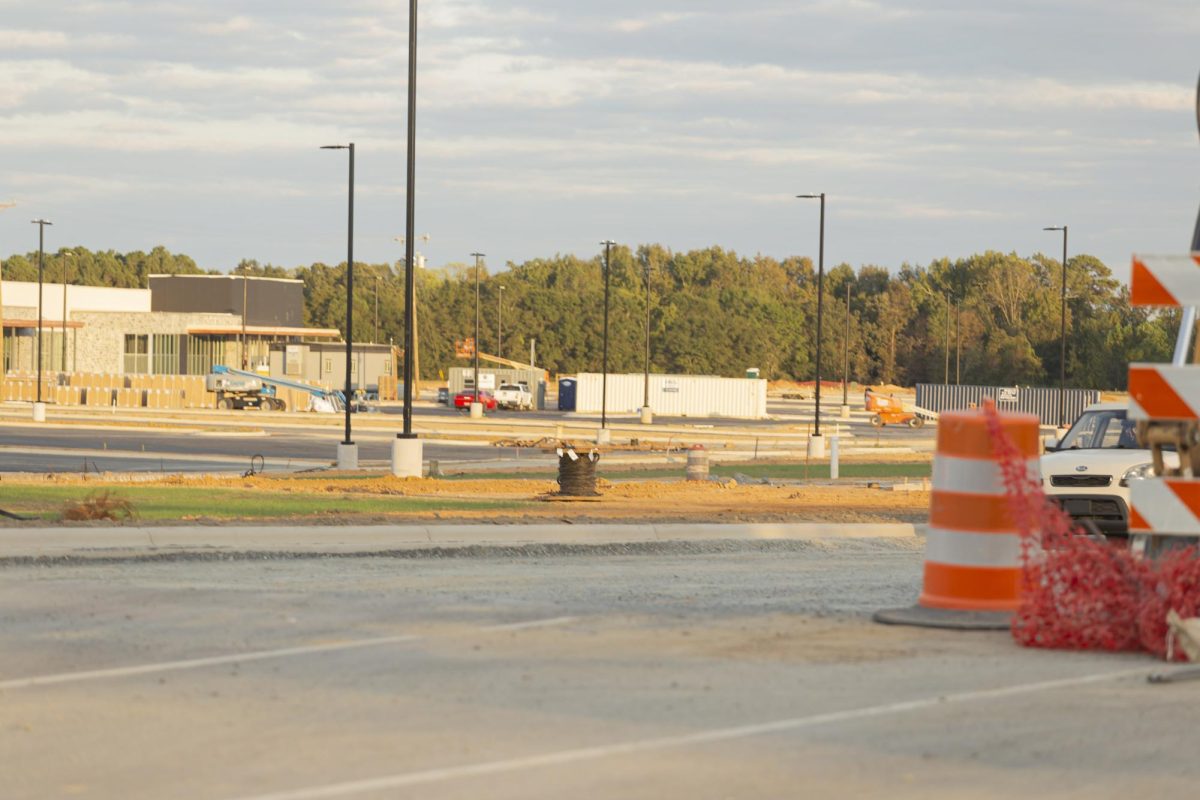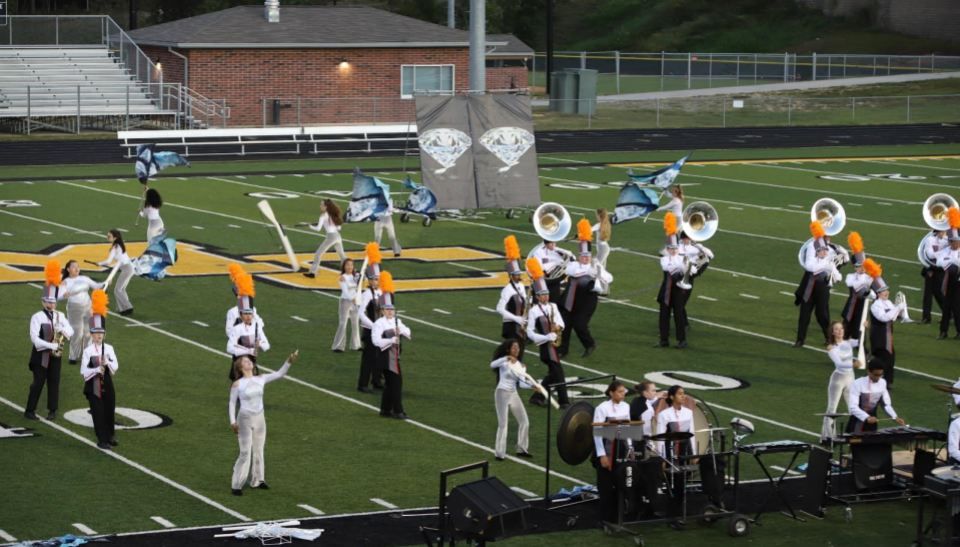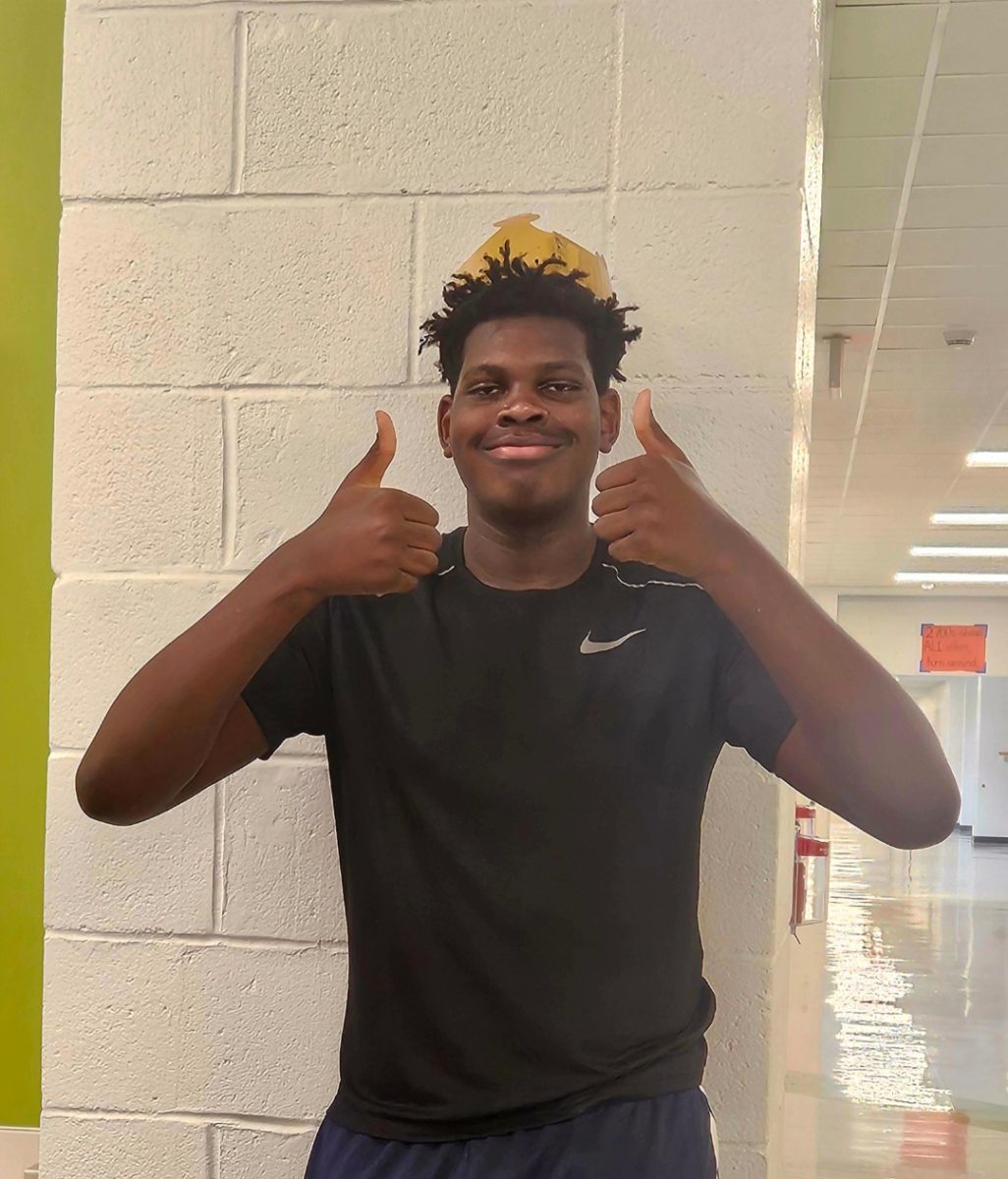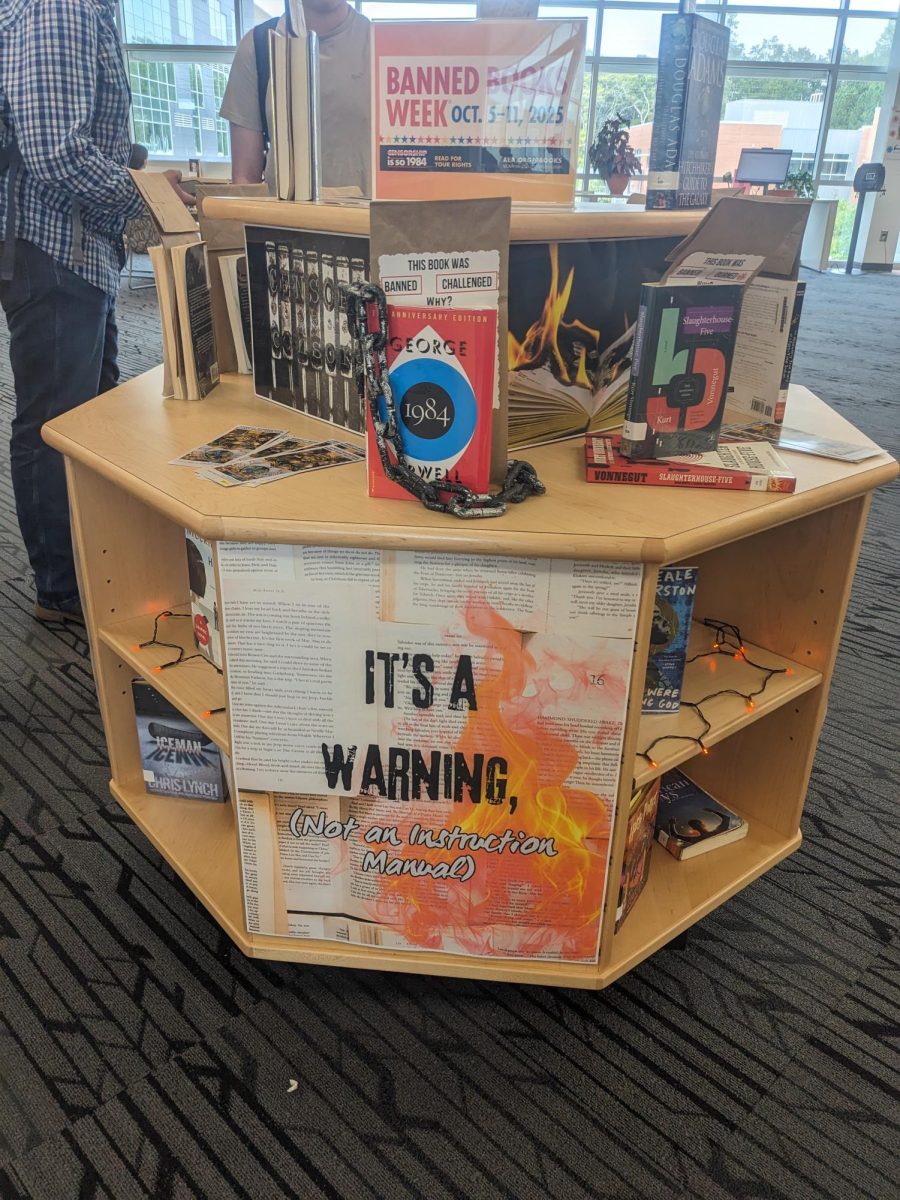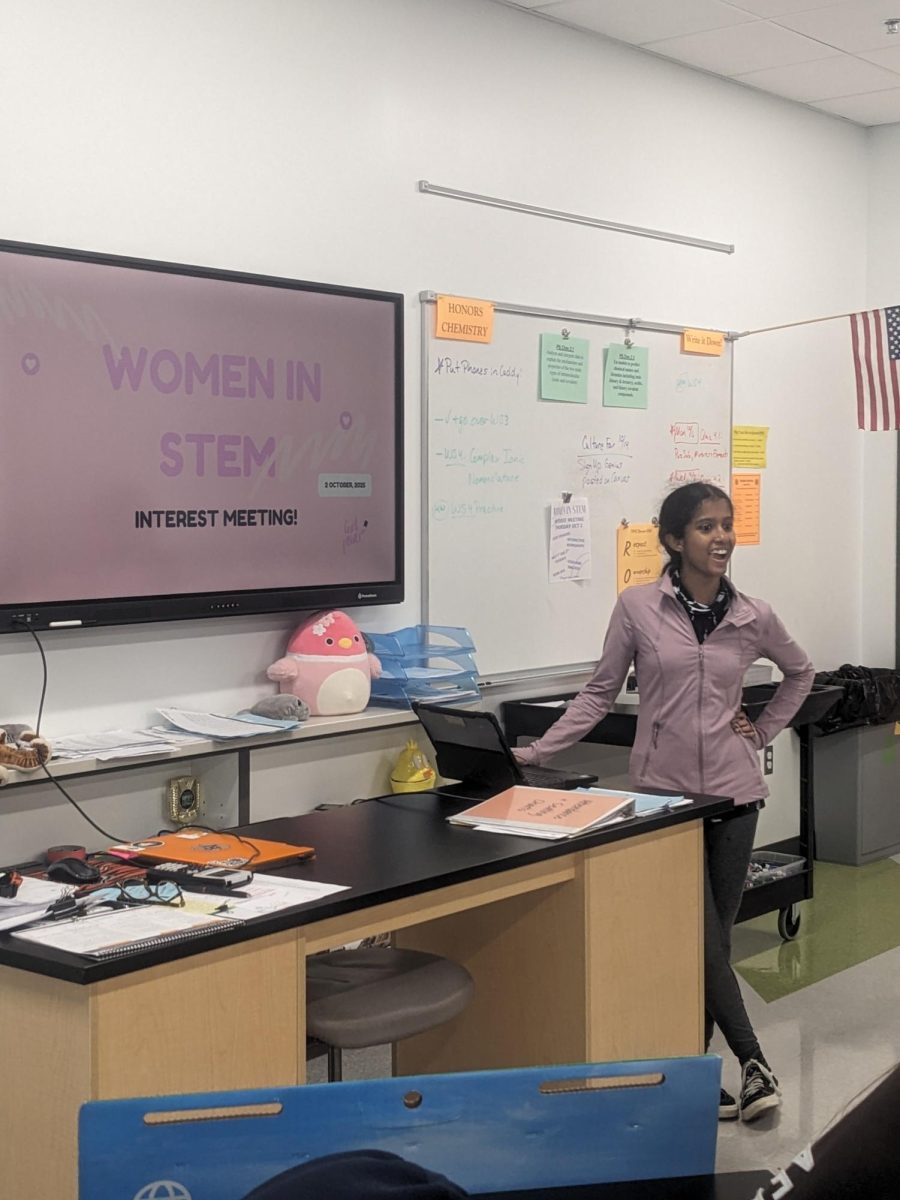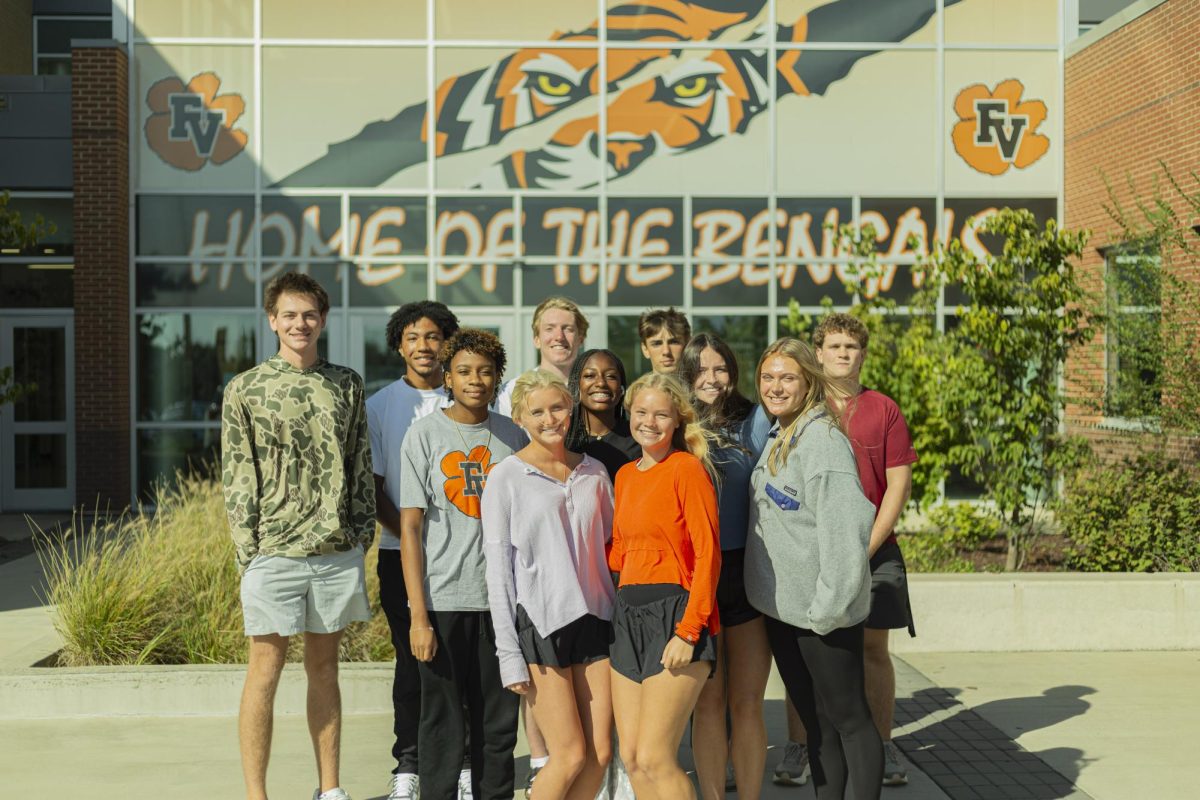Breast Cancer Awareness Month: How FVHS is supporting the fight
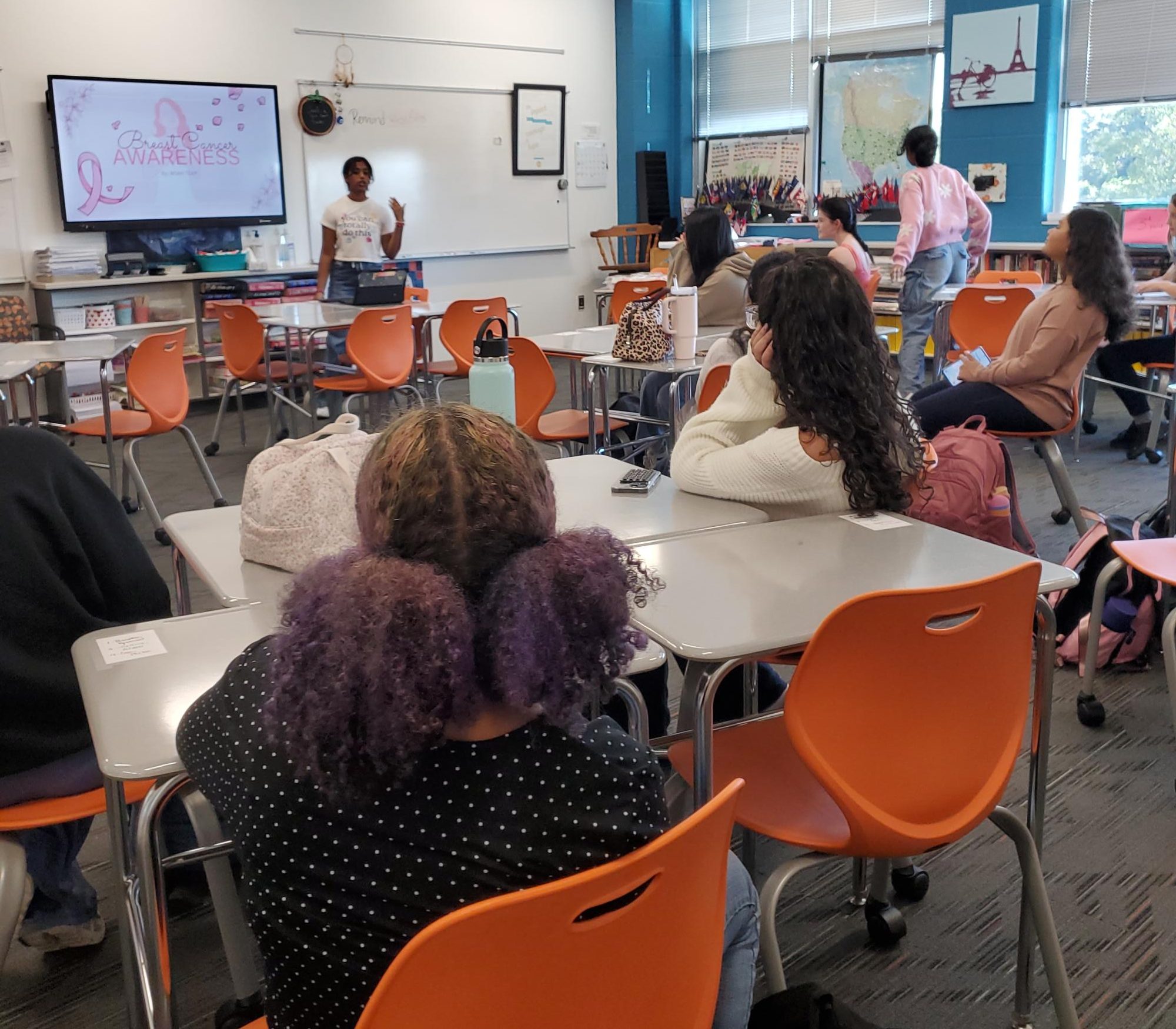

Fuquay-Varina High School’s student body has come together this month to help raise awareness for breast cancer. Whether it’s through thoughtful cards or making a bold artistic statement, the student body is playing their part in helping raise awareness.
“We painted the rock earlier this week,” said FVHS senior Sana Setth, President of HOSA. “We are also doing an out-of-club event where we are having members make cards for those who are in treatment right now, and we’ll give them to the hospital soon.”
The rock that Setth was referring to is our spirit rock, and it’s used by FVHS students as both a symbol of school spirit and a platform for artistic expression. In this case, it’s a message board raising awareness for breast cancer. But our school’s support goes beyond artistic statements.
“We’re encouraging everyone to wear pink on certain days to show support. Sharing information on social media or even just starting a conversation can have a real impact,” said junior Tanushri Vivek Singaram, team lead for WHOA. “It’s about coming together as a community and showing that no one has to face this alone.”
As part of FVHS’s spirit week, students are encouraged to wear pink on Wednesday, Oct. 15, Breast Cancer Awareness Day, to show their support for those fighting against the disease.
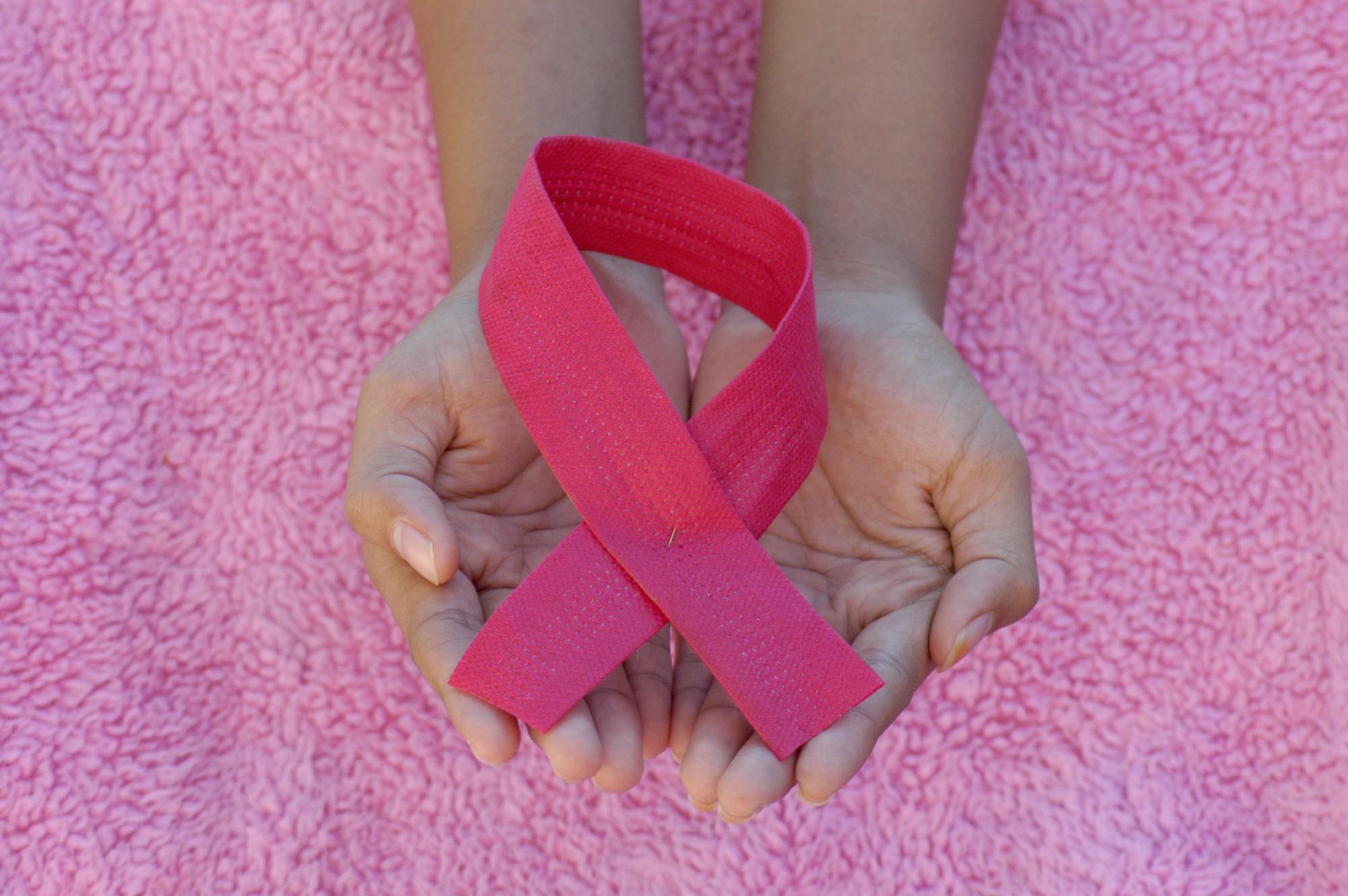
Breast Cancer Awareness Month is celebrated every October. It was established in 1985 by the American Cancer Society and a pharmaceutical division of Imperial Chemical Industries, a British chemical company, to encourage regular mammograms and early detection. Its goal is to raise awareness of the disease, encourage women to examine themselves for any signs or symptoms or breast cancer, fund research and advocate for treatment and prevention.
The symbol for this international campaign is a pink ribbon, popularized by Susan G. Komen Foundation and Estee Lauder, although originally it was a yellow ribbon. This all began when Betty Ford had an open discussion of her mastectomy–a surgical procedure that removes all of the cancerous tissue in the breast–to raise awareness and advocate for early detection in the 1970s.

While some may believe that only older women with a family history of breast cancer can develop the condition, this is far from reality. The disease can affect women as young as 18 years old, and while a family history of breast cancer should prompt individuals to get regular check-ups with their doctors to catch any early signs of the disease, most cases appear independent of hereditation as the disease is not inherently genetic.
In fact, breast cancer isn’t even limited to women. Every person has some amount of breast tissue, and while men are at significantly lower risk of developing this condition than women, breast cancer is not a wholly gender-specific disease. Many have preconceived notions like these about breast cancer, which can put individuals in danger if they feel they won’t be affected and don’t check for indicators that may appear early on (during doctor visits or self-examinations).
However, it’s not only assumptions that can prevent individuals from receiving the care they need. Health equity and access also play an important part in individuals’ ability to identify and address breast cancer early on. If people don’t have insurance, live far from clinics or aren’t given clear information, they may not get screened in time.
There is no cure for breast cancer yet, but there are ways you can lower the risk factor for getting breast cancer. Studies have shown that moderate to rigorous physical activity is linked to lower breast cancer risk. The American Cancer Society recommends that adults get 150-300 minutes of moderate physical activity or 75-150 minutes of vigorous physical activity. Alcohol also increases the risk of breast cancer, so it is recommended to not drink alcohol, but for the women who do drink, the recommended amount is no more than one alcoholic drink per day. Women who choose to breastfeed for several months after childbirth have a benefit of reducing breast cancer.
“Young people need to stay healthy and avoid things that might give you breast cancer,” said WHOA co-adviser Rebecca Bradford.
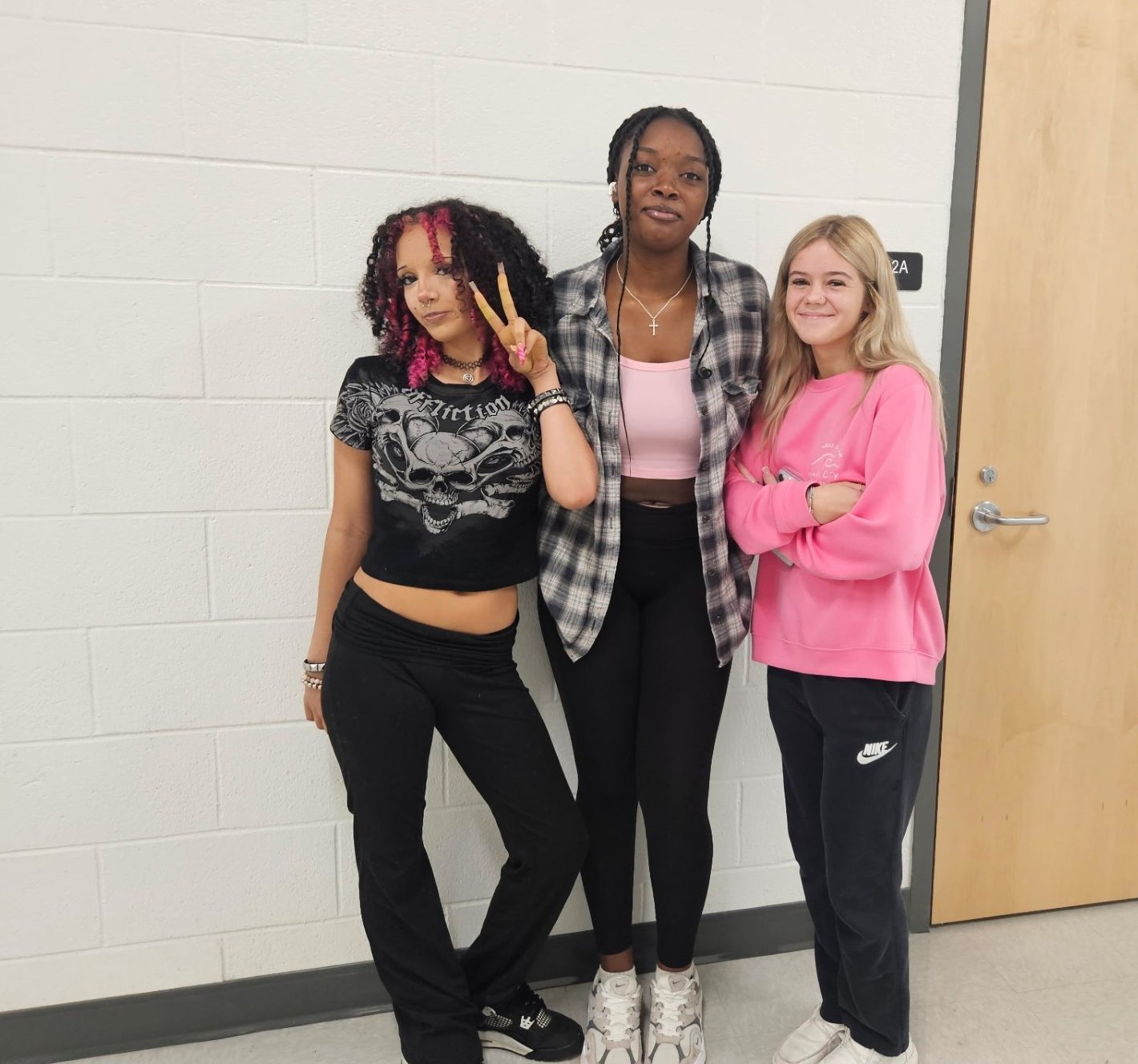
Breast cancer has had a devastating impact on a multitude of women around the world, and Fuquay-Varina is no exception. Rebecca Bradford, FVHS Government and Civics teacher and sponsor of WHOA, battled the disease herself.
“I was diagnosed [with breast cancer]. I had surgery to remove the tumors, and I had radiation and chemotherapy. The chemo was rough,” said Bradford.
Covid hit during March of 2020 while Bradford was still undergoing chemotherapy. While the pandemic provided its own unique set of challenges, it also gave her the opportunity to work from home.
“I was lucky,” Bradford explained. “I don’t think I would have been able to keep my job if both [my treatment and the pandemic] hadn’t happened at the same time.”
This is an unfortunate reality for many women dealing with this diagnosis, as treatments such as chemotherapy can cause side effects like severe fatigue, pain and nausea that make working difficult or even impossible.
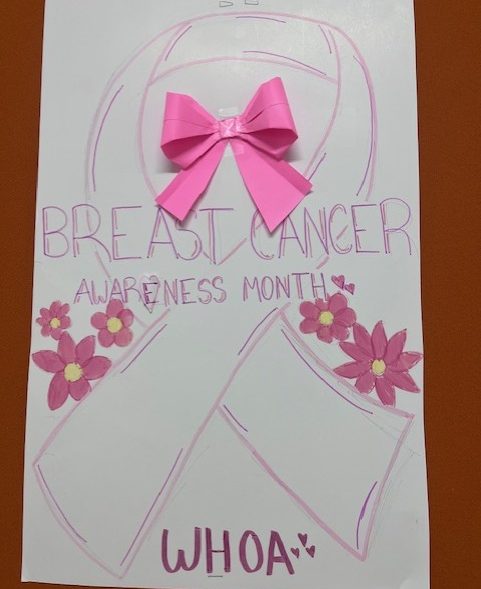
To help spread awareness for those affected by breast cancer, students can wear pink, use social media to share information and stories about breast cancer, and hang posters about the dangers of breast cancer around our school. Students can also participate in group activities, such as participating in local fundraisers or volunteering for organizations that support breast cancer.
Students can continue to advocate for breast cancer by participating in meetings in WHOA or HOSA that educate them about breast cancer, posting stories or sharing information on social media. While FVHS students might not be able to establish new clinics, at least not while in high school, they can still help spread information about breast cancer and measures one can take to prevent it.
FVHS stands in support of women facing the diagnosis of breast cancer. If you’re able to make a donation, charities such as Pink Fund and the Pretty in Pink Foundation help women facing financial difficulties in their fight against breast cancer.
Your donation will support the student journalists of Fuquay-Varina High School. Your contribution will allow us to purchase equipment and cover our annual website hosting costs.


